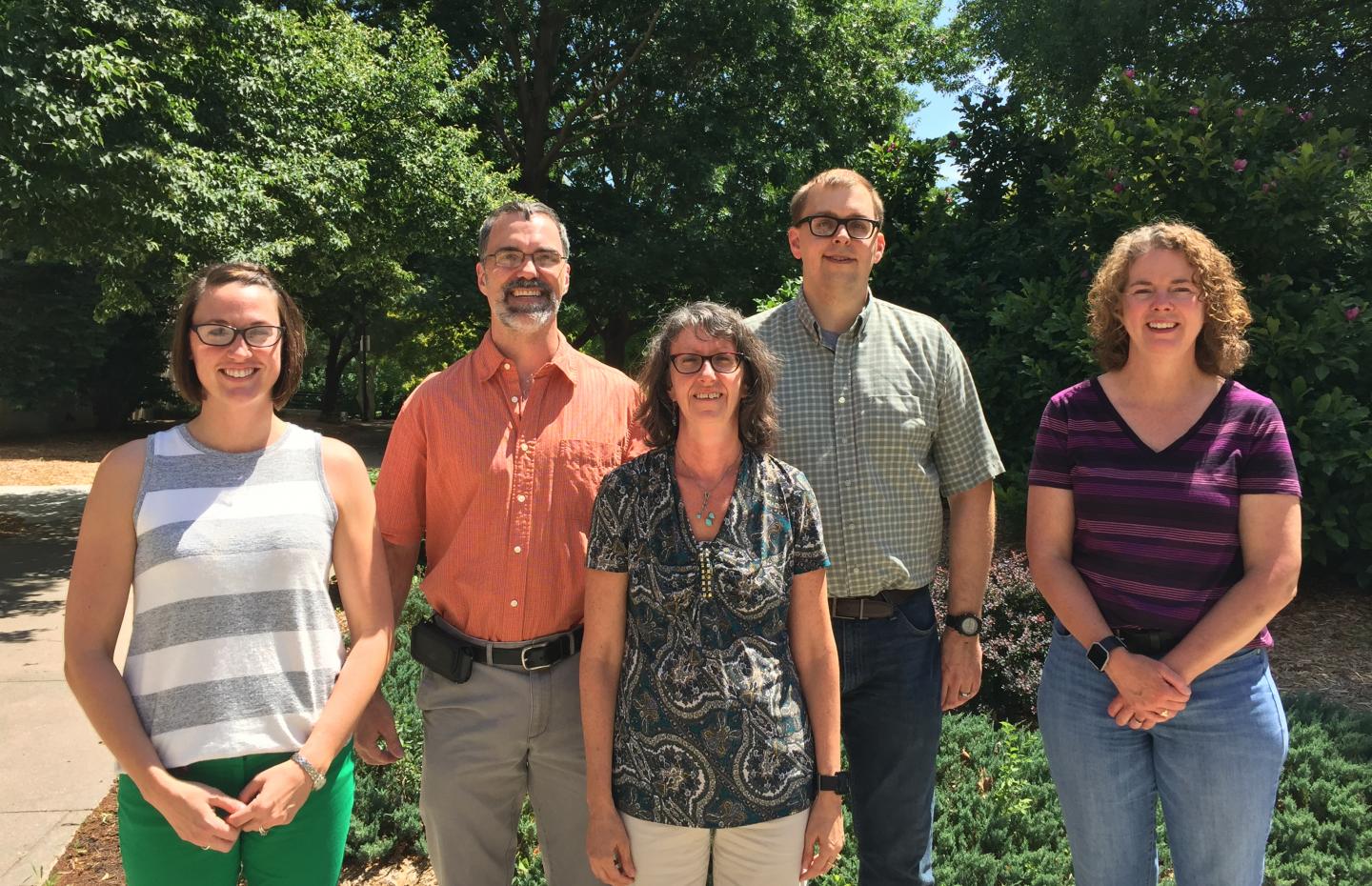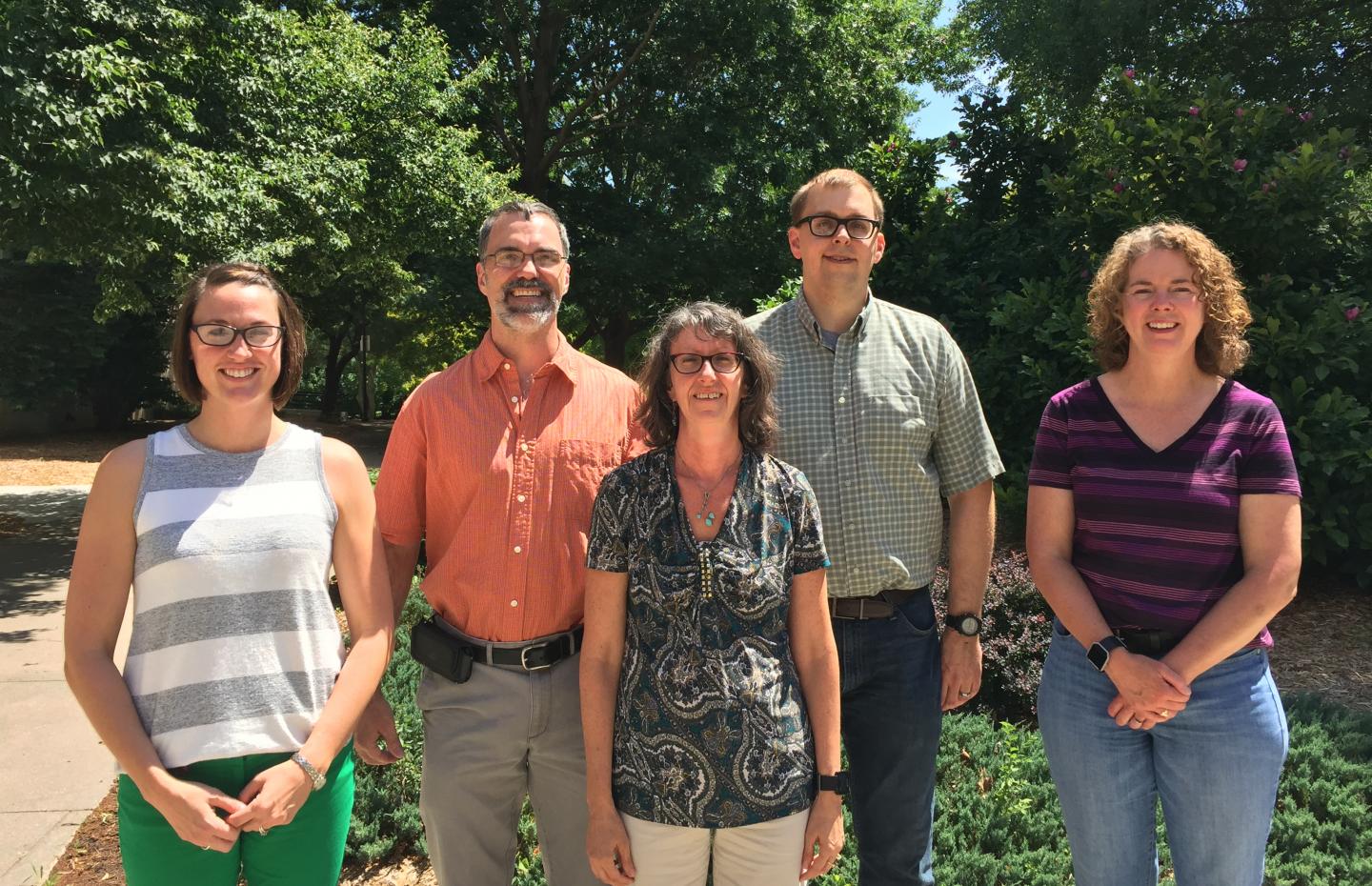
Credit: Kansas State University
MANHATTAN, KANSAS — The National Institutes of Health is awarding a Kansas State University-led team of psychological sciences researchers with a prestigious five-year, $10.6 million Centers of Biomedical Research Excellence, or COBRE, grant. It is the largest grant in the history of the psychological sciences department.
The team — which also includes collaborators from Wichita State University and the University of Kansas Medical Center — will use the grant to establish the Cognitive and Neurobiological Approaches to Plasticity, or C-NAP, center. Plasticity refers to the brain's ability to grow and change its connections, and encompasses both natural aspects of human brain development throughout the lifespan as well as those due to experiences.
The center will support cognitive, behavioral and neurobiological research as well as laboratory renovation and upgrades; faculty, postdoctoral fellow and graduate student recruitment; and professional development.
This is only the second time that Kansas State University has received a COBRE grant. COBRE funding comes from the National Institutes of Health's National Institute of General Medical Sciences and supports multidisciplinary centers that focus on biomedical research. Kimberly Kirkpatrick, professor of psychological sciences, will serve as director of the C-NAP center and Lester Loschky, professor of psychological sciences, will be associate director.
"The enrichment to our research community is going to be substantial," Kirkpatrick said. "This grant will bring a lot more resources and infrastructure improvements and it will enhance our graduate program. The funding will allow our faculty members to take their research to the next level, which is a big deal."
"This is a tremendous event in the history of the psychological sciences department, and it will be transformational," Loschky said. "The COBRE grant will greatly help the psychological sciences department to achieve its overarching goals for the 2025 plan of raising our stature both nationally and internationally. It makes me very proud of our department."
The funding initially will support four faculty members who are serving as project leaders as well as postdoctoral fellows and doctoral students who will help conduct the research. The four researchers are receiving $150,000 to $200,000 grants to support their work and are partnering with leaders in their research fields to help implement their projects. The center also will recruit two new faculty members during the five-year grant.
The four project leaders and their research topics include:
- Mary Cain, professor of psychological sciences, who will study how environmental enrichment can change brain structure and create resistance to alcohol abuse. She will collaborate with Stefan Bossmann, professor of chemistry.
- Heather Bailey, assistant professor of psychological sciences, who will study how an older adult's rich body of knowledge can help overcome the degradation of working memory for everyday activities that people experience as they age. She will collaborate with the University of Kansas Medical Center's Hoglund Brain Imaging Center.
- Charles Pickens, assistant professor of psychological sciences, who will study the neural circuits involved in cognitive flexibility and decision-making.
- Rui Ni, associate professor of psychology at Wichita State University, who will work to develop interventions to mitigate cognitive and visual impairments that affect driving abilities in aging individuals.
"This grant is designed for faculty success," Kirkpatrick said. "We are investing in faculty with money, time and other resources to try and build them up. The funding will open the door for many more collaborations and training seminars that will benefit faculty, postdoctoral fellows and graduate students."
In addition to supporting faculty projects, the COBRE grant will fund three core research facilities, including:
- Renovating the Behavioral Neuroscience Laboratory Research Core at Kansas State University so researchers can use state-of-the-art neuroscience techniques.
- Building a new Neuroinformatics Research Core at Kansas State University — under the direction of Daniel Andresen, professor of computer science — to improve data modeling and visualization capabilities.
- Creating a 3-D driving simulator at Wichita State University that uses advanced technology, such as eye tracking, to study driving behavior.
The COBRE grant also supports a pilot grant program to recruit new faculty members to the center, a training program for postdoctoral researchers and a scientific exchange network to build collaborations with other universities. During the five years of grant funding, the university will organize two miniconferences for scientists to share their latest research.
A team of interdisciplinary faculty members made up the internal advisory board for the COBRE grant development and will continue as advisers during the project. The team includes Michael Young, professor and head of psychological sciences; Brian Spooner, university distinguished professor of biology; Daniel Marcus, professor emeritus of anatomy and physiology; and Rhonda Lewis, department chair and professor of psychology at Wichita State University.
COBRE support from the National Institute of General Medical Sciences can be renewed for a total of three five-year phases. The current grant covers phase one and will support initial center development.
###
Media Contact
Kimberly Kirkpatrick
[email protected]
785-532-6850
@KStateNews
http://www.k-state.edu
Original Source
http://www.k-state.edu/media/newsreleases/2017-07/cobre72617.html





